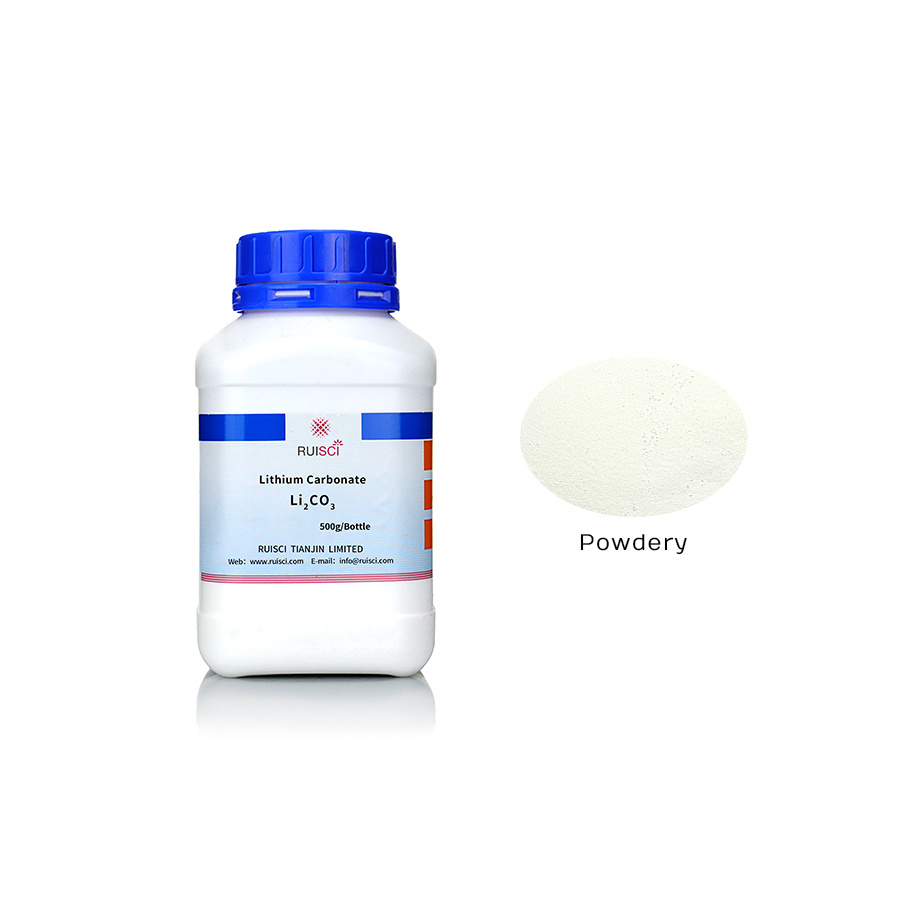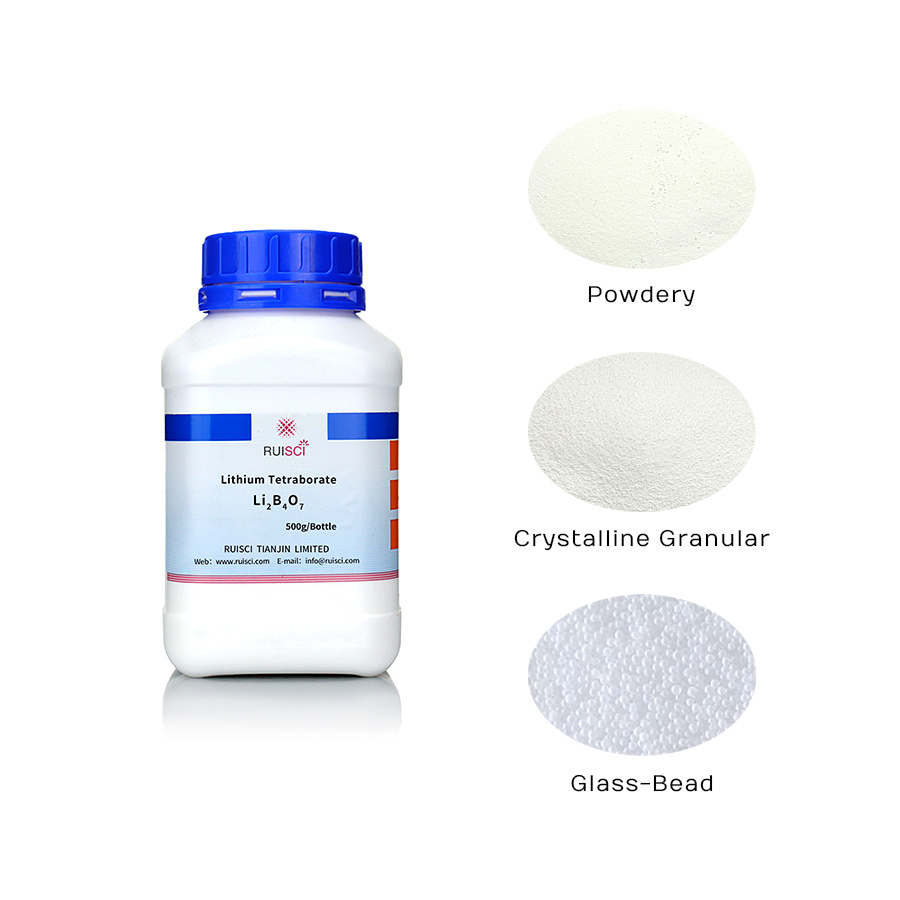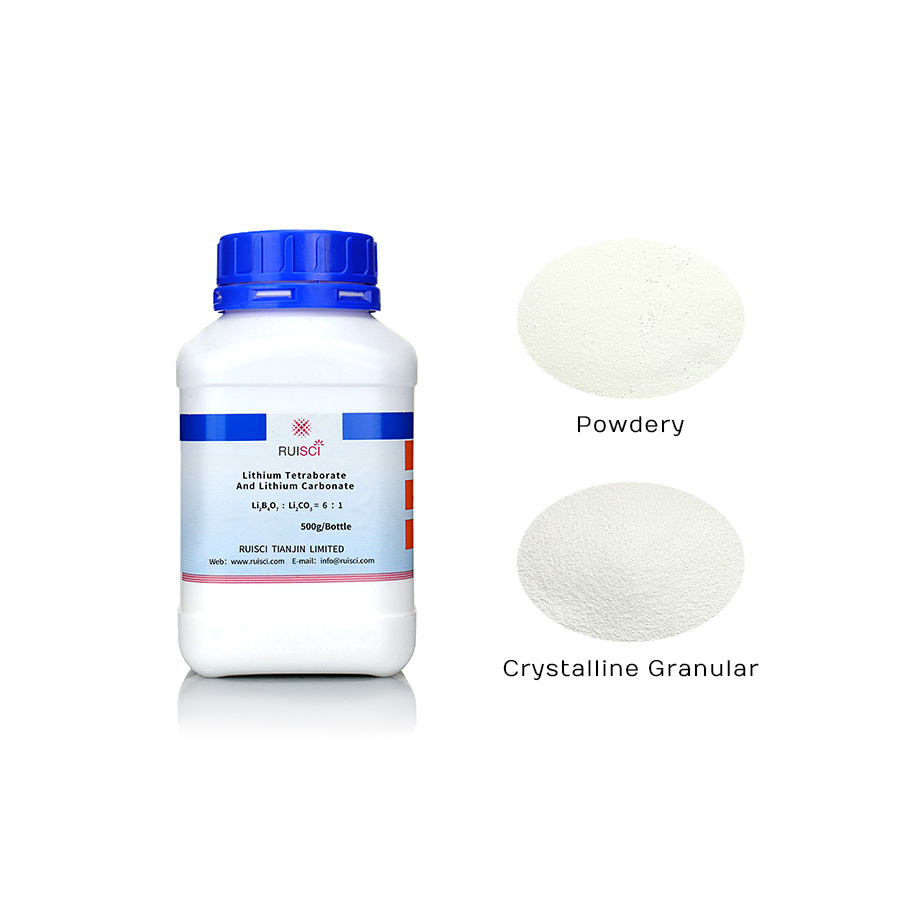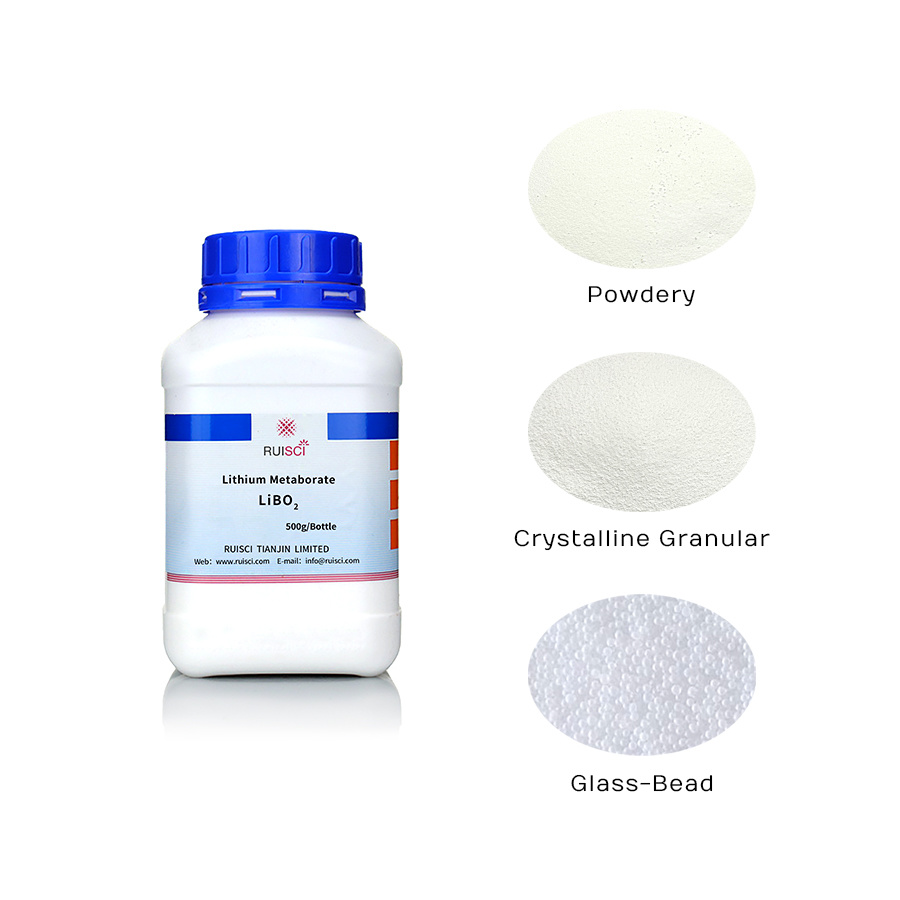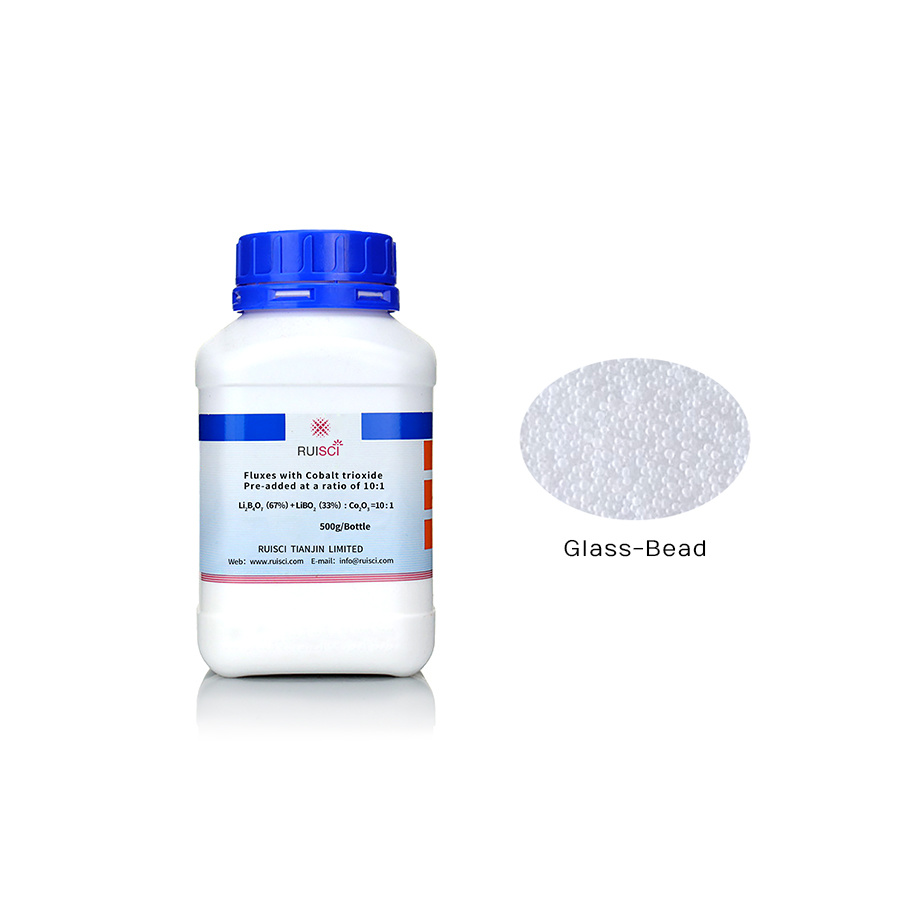Quality Assured
Just Buy It
- Comparison
- 在线预约
- 预约申请
- 样品申请
- 在线询价
LiBr,KBr,LiI,KI,NH4I,Mould Release Agents, For RUISCI Fluxes
Mould Release Agents,For RUISCI Fluxes
R-FL-L
-
Click to select
- R-FL-L-01,LiBr,≥99.5%,50g
- R-FL-L-02,LiBr,≥99.5%,100g
- R-FL-L-03,LiBr,≥99.9%,50g
- R-FL-L-04,LiBr,≥99.9%,100g
- R-FL-L-05,KBr,≥99.5%,50g
- R-FL-L-06,KBr,≥99.5%,100g
- R-FL-L-07,KBr,≥99.9%,50g
- R-FL-L-08,KBr,≥99.9%,100g
- R-FL-L-09,LiI,≥99.9%,50g
- R-FL-L-10,LiI,≥99.9%,100g
- R-FL-L-11,KI,≥99.5%,50g
- R-FL-L-12,KI,≥99.5%,100g
- R-FL-L-13,KI,≥99.9%,50g
- R-FL-L-14,KI,≥99.9%,100g
- R-FL-L-15,NH4I,≥99.9%,50g
- R-FL-L-16,NH4I,≥99.9%,100g
- R-FL-L-17,NH4I,≥99.999%,50g
- R-FL-L-18,NH4I,≥99.999%,100g
Inventory
6354
隐藏域元素占位
Overview
RUISCI Mould Release Agents is an ancillary chemical substance primarily employed to facilitate the smooth ejection of samples from molds. By forming an isolating film on the mold surface, it reduces the adhesion force between the sample and the mold, thereby enabling effortless demolding while simultaneously reducing sample damage and mold abrasion. It possesses excellent heat resistance and chemical stability and is applicable for demolding of multiple materials. During application, a suitable Mould Release Agents should be chosen based on the nature of the mold and the sample, and it should be uniformly coated to ensure the optimal outcome.
Features
1. Highly efficient demolding: An isolation layer is formed on the mold surface, reducing the adhesion force between the sample and the mold, facilitating the demolding of the sample and minimizing the risk of sample damage.
2. Excellent chemical stability: Exhibits favorable chemical compatibility with a wide range of materials (such as plastics, rubbers, metals, etc.) and does not undergo reactions with the mold or the sample.
3. Minimal residue: Leaves a negligible amount of residue on the surface of the sample or the mold after demolding, without exerting any influence on subsequent experiments or processing.
4. Environmental friendliness: Predominantly water-based formulations, devoid of volatile organic solvents, ensuring safe usage and environmental benignancy.
5. Simple operation: Can be rapidly and uniformly applied through methods such as spraying, brushing or wiping, offering convenience in utilization.
6. The particles are uniform, pollution-free, and of high purity.
Technical data
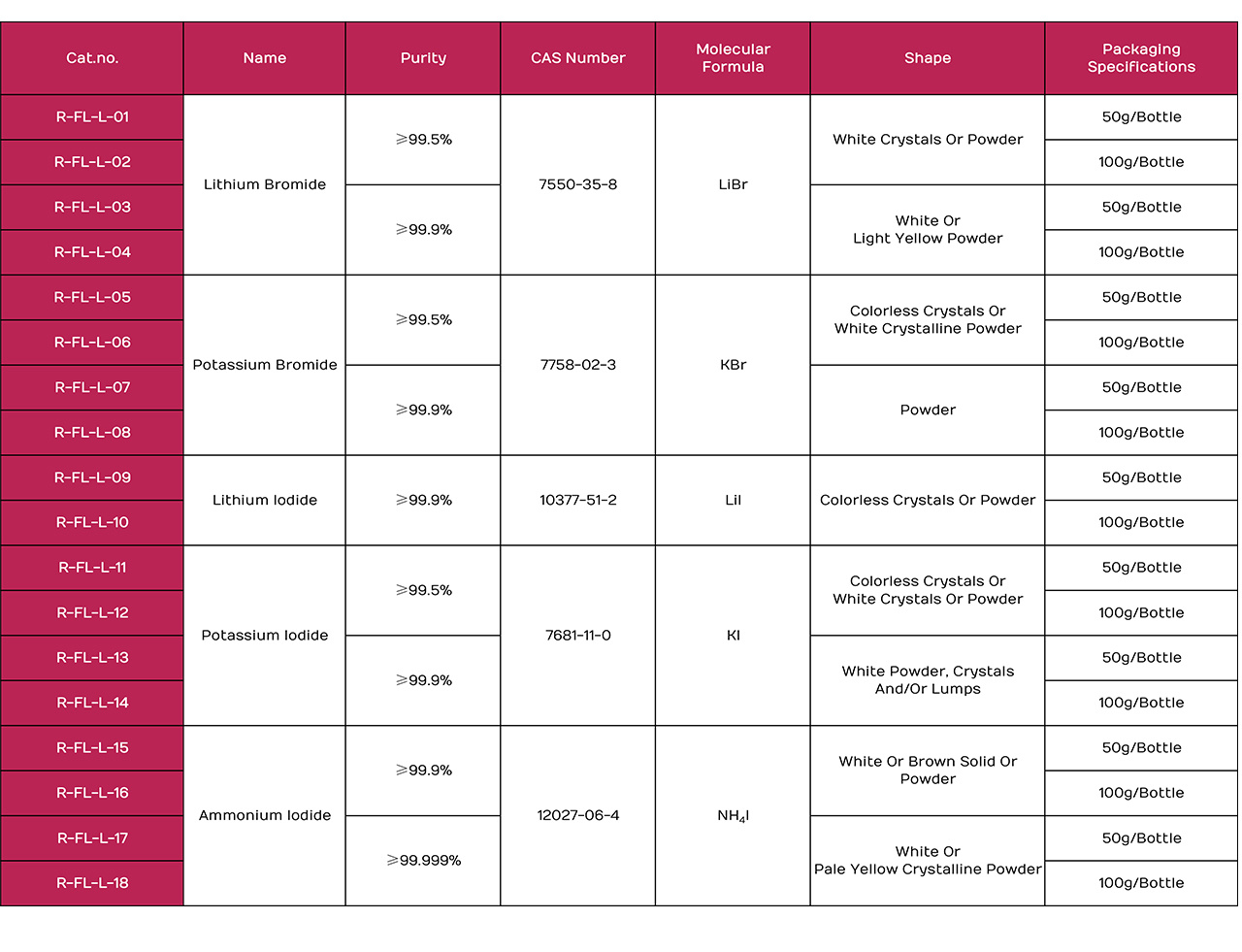
Working Environment Conditions:
1. Personal Protection: When manipulating Mould Release Agents, appropriate personal protective equipment such as laboratory safety glasses, protective gloves, and protective clothing should be worn.
2. Inhalation Avoidance: During the handling of Mould Release Agents, inhalation of their dust or fumes should be avoided. Work in a well-ventilated setting and utilize local exhaust equipment when necessary.
3. Skin Contact: In case flux accidentally comes into contact with the skin, immediate rinsing with copious amounts of water is necessary and medical assistance should be sought.
4. Eye Contact: If flux enters the eyes, immediate rinsing of the eyes with copious amounts of water for at least 15 minutes is required, and medical attention should be sought promptly.
5. Storage Conditions: Mould Release Agents should be kept in a dry, cool, and well-ventilated location, distant from heat and fire sources.
6. Labels and Documentation: Ensure that all flux containers are distinctly labeled, indicating the contents, hazard level, and safety instructions for usage.
7. Usage Quantity: The use of Mould Release Agents should be strictly in accordance with experimental requirements and excessive usage should be avoided.
8. Waste Disposal: Waste Mould Release Agents after utilization should be dealt with in accordance with laboratory waste disposal regulations and must not be disposed of randomly.
9. Equipment Inspection: Prior to the use of Mould Release Agents, it is necessary to inspect whether all equipment intended for use with Mould Release Agents is in good condition.
10. Operating Procedures: Adhere to the laboratory's operating procedures and safety guidelines to ensure the safety of experiments.
11. Training and Education: Ensure that all personnel using Mould Release Agents have received appropriate training and education, and have an understanding of the potential risks and correct operation methods.
12. Emergency Response: Be familiar with the laboratory's emergency response measures, including the handling of fires, leaks, and personnel injuries.
13. Mixing Avoidance: Different Mould Release Agents should not be mixed unless there is explicit experimental guidance and safety data support.
14. Stability Check: Regular checks on the stability of Mould Release Agents should be conducted and the use of expired or deteriorated products should be avoided.
keyword:
RUISCI
Previous:
Next:
- 产品描述
- 概要参数
- 技术参数
-
- Commodity name: LiBr,KBr,LiI,KI,NH4I,Mould Release Agents, For RUISCI Fluxes
- Subtitle: Mould Release Agents,For RUISCI Fluxes
- Model: R-FL-L
- 全部型号: R-FL-L-01,R-FL-L-02,R-FL-L-03,R-FL-L-04,R-FL-L-05,R-FL-L-06,R-FL-L-07,R-FL-L-08,R-FL-L-09,R-FL-L-10,R-FL-L-11,R-FL-L-12,R-FL-L-13,R-FL-L-14,R-FL-L-15,R-FL-L-16,R-FL-L-17,R-FL-L-18,7550-35-8,7758-02-3,10377-51-2,7681-11-0,12027-06-4
RUISCI Mould Release Agents is an ancillary chemical substance primarily employed to facilitate the smooth ejection of samples from molds. By forming an isolating film on the mold surface, it reduces the adhesion force between the sample and the mold, thereby enabling effortless demolding while simultaneously reducing sample damage and mold abrasion.
RUISCI Mould Release Agents is an ancillary chemical substance primarily employed to facilitate the smooth ejection of samples from molds. By forming an isolating film on the mold surface, it reduces the adhesion force between the sample and the mold, thereby enabling effortless demolding while simultaneously reducing sample damage and mold abrasion. It possesses excellent heat resistance and chemical stability and is applicable for demolding of multiple materials. During application, a suitable Mould Release Agents should be chosen based on the nature of the mold and the sample, and it should be uniformly coated to ensure the optimal outcome.
-
1. Highly efficient demolding: An isolation layer is formed on the mold surface, reducing the adhesion force between the sample and the mold, facilitating the demolding of the sample and minimizing the risk of sample damage.
2. Excellent chemical stability: Exhibits favorable chemical compatibility with a wide range of materials (such as plastics, rubbers, metals, etc.) and does not undergo reactions with the mold or the sample.
3. Minimal residue: Leaves a negligible amount of residue on the surface of the sample or the mold after demolding, without exerting any influence on subsequent experiments or processing.
4. Environmental friendliness: Predominantly water-based formulations, devoid of volatile organic solvents, ensuring safe usage and environmental benignancy.
5. Simple operation: Can be rapidly and uniformly applied through methods such as spraying, brushing or wiping, offering convenience in utilization.
6. The particles are uniform, pollution-free, and of high purity. -

Working Environment Conditions:
1. Personal Protection: When manipulating Mould Release Agents, appropriate personal protective equipment such as laboratory safety glasses, protective gloves, and protective clothing should be worn.
2. Inhalation Avoidance: During the handling of Mould Release Agents, inhalation of their dust or fumes should be avoided. Work in a well-ventilated setting and utilize local exhaust equipment when necessary.
3. Skin Contact: In case flux accidentally comes into contact with the skin, immediate rinsing with copious amounts of water is necessary and medical assistance should be sought.
4. Eye Contact: If flux enters the eyes, immediate rinsing of the eyes with copious amounts of water for at least 15 minutes is required, and medical attention should be sought promptly.
5. Storage Conditions: Mould Release Agents should be kept in a dry, cool, and well-ventilated location, distant from heat and fire sources.
6. Labels and Documentation: Ensure that all flux containers are distinctly labeled, indicating the contents, hazard level, and safety instructions for usage.
7. Usage Quantity: The use of Mould Release Agents should be strictly in accordance with experimental requirements and excessive usage should be avoided.
8. Waste Disposal: Waste Mould Release Agents after utilization should be dealt with in accordance with laboratory waste disposal regulations and must not be disposed of randomly.
9. Equipment Inspection: Prior to the use of Mould Release Agents, it is necessary to inspect whether all equipment intended for use with Mould Release Agents is in good condition.
10. Operating Procedures: Adhere to the laboratory's operating procedures and safety guidelines to ensure the safety of experiments.
11. Training and Education: Ensure that all personnel using Mould Release Agents have received appropriate training and education, and have an understanding of the potential risks and correct operation methods.
12. Emergency Response: Be familiar with the laboratory's emergency response measures, including the handling of fires, leaks, and personnel injuries.
13. Mixing Avoidance: Different Mould Release Agents should not be mixed unless there is explicit experimental guidance and safety data support.
14. Stability Check: Regular checks on the stability of Mould Release Agents should be conducted and the use of expired or deteriorated products should be avoided.
Q and A
Q
Distribution Modes:
A
Default Distribution Mode: EXW China Factory: After your payment is received, our customer service will contact you to confirm the pickup time and location once the goods are ready at the RUISCI China factory.
*Other options:
1.Carriage Paid To (CPT)
DO NOT PAY until you have contacted customer service to add shipping costs, as the default price is EXW China factory.
2.Delivered Duty Paid(DDP)
DO NOT PAY until you have ·contacted customer service to add Freight, insurance, taxes, customs clearance fees, and other miscellaneous expenses, as the default price is EXW China factory. Typically applies exclusively to small air cargo packages.
3. FOB China main port
DO NOT PAY until you have contacted customer service to add the inland charges and export declaration charges, as the default price is EXW China factory.
*** If you still need to consult other distribution modes or trade terms, please contact our customer service directly
Q
Payment methods:
A
1. On-line payment: Paypal
2. Off-line payment: Telegraphic Transfer (TT)
*All charges, except those incurred within our bank, are to be borne by the remitter. Insufficient payment will delay your shipment.
Download
There is currently no content to display
Related products
Online consultation



